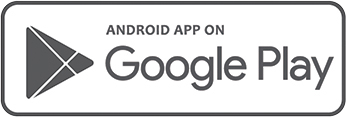Evangelical Christian School
0905
Standards of Ethical Conduct
The following disciplinary rules shall constitute Evangelical Christian School’s ethical standards for all staff members. Violation of any of these standards shall subject the individual to discipline and/or dismissal. Evangelical Christian School values the worth and dignity of every person, the pursuit of truth, devotion to excellence, acquisition of knowledge, and the nurture of spiritual growth. Essential to the achievement of these standards is the freedom to learn and to teach in a truly Christian environment. ECS’ primary professional concern will always be for the student and for the development of the student’s potential, both from an educational perspective and a spiritual perspective. Evangelical Christian School will therefore strive for professional and spiritual growth and will seek to exercise the best professional judgment and integrity while maintaining a proper Christian testimony. Aware of the importance of maintaining the respect and confidence of one’s colleagues, of students, of parents, and of other members of the community are necessary in order to achieve and sustain the highest degree of ethical conduct.
Evangelical Christian School maintains high ethical standards and professionalism in conducting its business affairs and expects the same commitment from each employee. The intent of this policy is that each employee will conduct Evangelical Christian School’s business with integrity and comply with all applicable laws in a manner that glorifies Christ and excludes considerations of personal advantage or gain.
All teachers and administrators must complete training on ethical standards during teacher orientation week.
CONFIDENTIALITY AGREEMENTS:
Evangelical Christian School, or any of its employees, may not enter into a confidentiality agreement regarding terminated or dismissed staff members, or staff members who resign in lieu of termination, based in whole or in part on misconduct that affects the health, safety, or welfare of a student, and may not provide the staff member with employment references or discuss the personnel’s or administrators’ performance with prospective employers in another educational setting, without disclosing the staff member’s misconduct. Any part of an agreement or contract that has the purpose or effect of concealing misconduct by staff members which affects the health, safety, or welfare of a student is void, is contrary to public policy, and may not be enforced.
MANDATORY REPORTING REQUIREMENTS:
Evangelical Christian School seeks to express God’s love of children and provide for their personal wholeness. This caring community seeks to prevent child abuse of any form to our children and youth and to minister to victims of abuse and their families. The Bible is foundational to our understanding upon which all policies, procedures, and ministries must stand.
And they brought young children to him, that he should touch them: and his disciples rebuked those that brought them. But when Jesus saw it, he was much displeased, and said unto them, Suffer the little children to come unto me, and forbid them not: for of such is the kingdom of God. Verily I say unto you, Whosoever shall not receive the kingdom of God as a little child, he shall not enter therein. And he took them up in his arms, put his hands upon them, and blessed them. (Mark 10:13–16)
And whoso shall receive one such little child in my name receiveth me. But whoso shall offend one of these little ones which believe in me, it were better for him that a millstone were hanged about his neck, and that he were drowned in the depth of the sea. Woe unto the world because of offences! for it must needs be that offences come; but woe to that man by whom the offence cometh! (Matthew 18:5–7)
Our goal in response to these Biblical mandates is to maintain a safe, secure, and loving place where children may grow: a place where caregivers, teachers, and leaders (both paid and volunteer) minister appropriately to their needs.
Evangelical Christian School desires to be a safe place for all children and adults who attend any activity. Individuals they know and trust sometimes victimize children. The ministry is not immune to such abuse, either by its members or by those in leadership positions. Incidents of child abuse or neglect cut across racial, social, economic and religious boundaries. Although no organization or individual can assure complete protection, this section reflects Evangelical’s commitment to help protect children from harm.
Evangelical Christian School will not tolerate child abuse or neglect. Staff cooperation in this commitment not only reflects a concern about children’s safety in this society, but also a willingness to take steps toward halting child abuse and its detrimental effects.
For the safety and protection of our children and workers, all people who participate in schools sponsored activities with children are required to comply with the guidelines provided in this policy.
If Evangelical Christian School receives an allegation of child abuse, it will respond with the utmost concern for the victim, parent, or other party making such an allegation. The accused will be treated with dignity and support. Without clear and convincing evidence to the contrary, Evangelical Christian School’s personnel will assume that such complaints are made in good faith. Persons making such complaints should have no doubt that Evangelical Christian School takes them seriously and will take appropriate action.
When it becomes necessary to report suspected child abuse or neglect, the protection of children must be the most important concern. It is the legal responsibility of any person with responsibility for the care of children to report all cases of child abuse they observe, and further, to report visible signs of alleged abuse. Failure to report could lead to liability, both civilly and criminally, on the part of the ministry/school, the observer or both.
Evangelical Christian School has determined that it is the responsibility of the program staff to report all cases of suspected child abuse to the proper legal authorities.
What is reasonable suspicion? Reasonable suspicion means that there is credible evidence or a discrepant or inconsistent history in explaining a child’s suspected abuse.
A report based on reasonable suspicion does not require proof that abuse or neglect has actually occurred or that the reporter witnessed the incident in question. Reporting is not a determination that child abuse or neglect has actually occurred; rather, it is a request for an assessment of the condition of a child.
Because we believe children are our most important concern, Evangelical Christian School has adopted the following guidelines for reporting:
a) Treat each allegation of child abuse seriously.
b) Attempt to assure the safety and protection of persons who have been harmed.
c) Pray for the school and all persons affected by the allegation.
d) Immediately begin documenting all procedures observed in handling the allegation.
e) Immediately notify the headmaster. The headmaster will, along with the reporting staff member, immediately report allegations to the Department of Children and Family Services.
f) Immediately notify the parents if it is not known that they have previous knowledge of the allegations, and allegations are not currently against them.
g) If the accused has assigned duties within the life of the school, that person must be immediately relieved of his duties until the investigation is concluded.
h) The school authorities should extend whatever care and resources necessary. In providing care to the principals (alleged victim and the accused) and their families, school authorities should under no circumstances be drawn into a discussion of the truth or falsity of the allegation which could contaminate an official investigation. Do not assign blame or take any steps that involve establishing or negating the allegation.
i) It is appropriate to show care and comfort for the alleged victim. This should be the objective from the moment the allegation is received or otherwise made known.
j) Observe confidentiality for both the alleged.
k) Do not confront the accused until the safety of the child or student is secured.
l) Do not prejudge the situation, but take the allegations seriously and reach out to the alleged victim and his or her family. Showing care and support help to prevent further hurt. Extend whatever resources are needed. Remember that the care and safety of the alleged victim is the first priority. In some situations, schools have responded in a negative or non-supportive manner to the alleged victim. This conduct can increase the anger and pain of the alleged victim and his or her family. Further reconciliation can then be more difficult and the possibility of damaging litigation increases.
m) Treat the accused with dignity and support.
Training Requirement
All instructional personnel, educational support employees, and administrators are required as a condition of employment to complete training on these standards of ethical conduct.
Reporting Misconduct by Instructional Personnel and Administrators
All employees, educational support employees, and administrators have an obligation to report misconduct by instructional personnel and school administrators which affects the health, safety, or welfare of a student. Examples of misconduct include obscene language, drug and alcohol use, disparaging comments, sexual innuendo, cheating or testing violations, physical aggression, and accepting or offering favors. Reports of misconduct of employees should be made to Dr. John Hunte at 239.936.3319.
Reports of misconduct committed by administrators should be made to Ms. Tara Jadwin at 239.936.3319.
Legally sufficient allegations of misconduct by Florida certified educators will be reported to the Office of Professional Practices Services. Policies and procedures for reporting misconduct by instructional personnel or school administrators which affects the health, safety, or welfare of a student are posted on the bulletin boards in each division and on our school website https://goecs.org/about-ecs/ethics-policy/
All employees have:
A duty to report actual or suspected cases of child abuse, abandonment, or neglect Immunity from liability if you report (liability protections provided under ss. 39.203 and 768.095,F.S.)
Reporting Child Abuse, Abandonment or Neglect
All employees and agents have an affirmative duty to report all actual or suspected cases of child abuse, abandonment, or neglect. Call 1-800-96-ABUSE or report online at: http://www.dcf.state.fl.us/abuse/report/.
Signs of Physical Abuse: The child may have unexplained bruises, welts, cuts, or other injuries; broken bones; or burns. A child experiencing physical abuse may seem withdrawn or depressed, seem afraid to go home or may run away, shy away from physical contact, be aggressive, or wear inappropriate clothing to hid injuries.
Signs of Sexual Abuse: A child experiencing sexual abuse may have unusual knowledge of sex or act seductively, fear a particular person, seem withdrawn or depressed, gain or lose weight suddenly, shy away from physical contact, or run away from home.
Signs of Neglect: The child may have unattended medical needs, little or no supervision at home, poor hygiene, or appear underweight. A child experiencing neglect may be frequently tired or hungry, steal food, or appear overly needy for adult attention.
Patterns of Abuse: Serious abuse involves a combination of factors. While a single sign may not be significant, a pattern of physical or behavioral signs is a serious indicator and should be reported.
Liability Protections Any person, official, or institution participating in good faith in any act authorized or required by law, or reporting in good faith any instance of child abuse, abandonment, or neglect to the department or any law enforcement agency, shall be immune from any civil or criminal liability which might otherwise result by reason of such action. (F.S. 39.203)
An employer who discloses information about a former or current employee to a prospective employer of the former or current employee upon request of the prospective employer or of the former or current employee is immune from civil liability for such disclosure or its consequences unless it is shown by clear and convincing evidence that the information disclosed by the former or current employer was knowingly false or violated any civil right of the former or current employee protected under F.S. Chapter 760. (F.S. 768.095)
Any instructional personnel or school administrator MUST report to their immediate supervisor any misconduct which affects the health, safety, or welfare of a student. Failure to report any misconduct will result in suspension of the educator certificate who knowingly fails to report child abuse or misconduct.
Important Contacts and Their Phone Numbers
National Child Abuse Hotline 1-800-4-A-CHILD
Florida Child Abuse Hotline (800) 96-ABUSE (800-962-2873)
Department of Children and Services web site: http://www.dcf.state.fl.us/abuse









